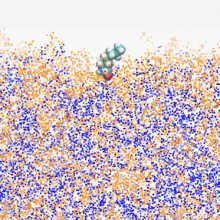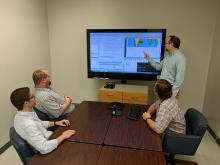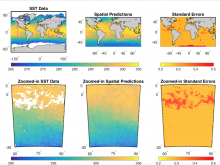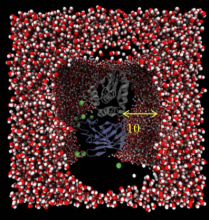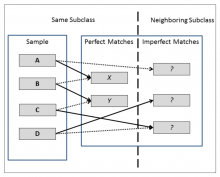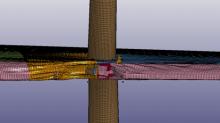Invention/Discovery
Data Management
The more genetics researchers learn about the building blocks of life, the more data they produce. This is a great problem to have – the more they know, and the more detail in which they know it, the better we can treat diseases at the individual level, streamline screening processes and create targeted pharmaceuticals.
Visual Perception
If two cups sat in front of you, one blue and one purple, and someone asked you to pick up the purple one, you would know which cup to grab and how to pick it up. Have you ever thought about why? Julie Golomb, Ph.D., spends most of her days answering this question and others related to how the brain perceives, processes and memorizes sensory input.
Genetic Mutation
Charis Eng, M.D., Ph.D., takes a gene-informed approach to personalized risk assessment and medical management of her patients and families. Her patient-focused research in genes, when altered, or mutated, associating with specific clinical features, such as cancer and autism spectrum disorder (ASD), provides the scientific evidence on which she practices precision medicine.
Inventive Activity
The 1960s Soviet/U.S. space race put men on the moon but also developed basic technologies that would result in subsequent breakthrough inventions in related fields: prosthetics, water purifiers, freeze-dried foods, satellite television, memory foam and many more. These advances were wrought from federally funded research and today serve the interests of broad swaths of the general public.
Precision Medicine
The world of personalized medicine is rapidly expanding, with advances in DNA sampling, expanded patient charts and more creating individualized treatment plans for more diseases and conditions every day. A researcher and his team at the University of Cincinnati are currently making way for precision medicine – in the mind.
